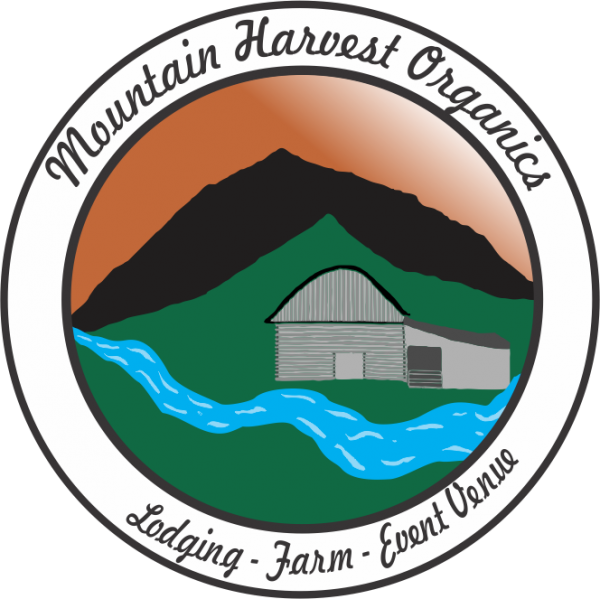Projects, WP Migration
We only had a few days above freezing with no snow!
For the last couple weeks we have been taking advantage of the cold and snowy weather staying indoors and nearly completing our seed planning for the 2011 growing season. Even though we have snow on the ground, the temperatures outside finally got above freezing, which allowed us to spend Thursday and Friday of last week doing the prep work for installing our tin roof on the wood shed. This required us to begin cutting and nailing up 7 collar ties, cripples for the false rafters, 14 runs of purlins, and finally attaching the false rafters. And then Monday and Tuesday of this week we were once again blessed with temperatures above freezing and no snow allowing us to complete screwing the tin to the purlins and now our wood shed has a roof! Alvin said, “If your not careful your wood might stay dry.”



I just finished reading the book, “The Dirty Life”, written by Kristin Kimball. I could totally relate to what Kristin has written about her farming experiences because they are so similar to mine. The book is inspirational for me in giving me hope that our next generation of farmers can earn a living off the farm. The support and relationship that Kristin and Mark have with their neighbors is incredibly similar to mine and Carl’s experiences here in the Appalachian Mountains. It was very generous of their lawyer friend in allowing Kristin and Mark to farm his land then more or less financed the land so they could buy the farm. It would be very nice to set up an organization for those people who are earning incomes from high paying professions, can buy good farmland, then provide owner financing in selling the farmland to future farmers.
Not in any particular order of importance, below you will find a few of my favorite quotes from the book, I am certain there are more but these are what I remembered most after reading the book:
“Farming, I discovered, is a great and ongoing war. The farmers are continually fighting to keep nature behind in the hedgerow, and nature is continually fighting to overtake the field.”
“The peak of summer was the crazy race that Mark had warned me about, a frantic contest of urgency. Haymaking! Fences! Harvest! Weeds! We sprinted through late plantings of fall carrots and beets. We abused the young cabbage transplants, trotting along a row with a tray of them, throwing them to the ground, then crawling on our knees and slamming each into the dirt with one unnurturing gesture, moving on to the next. The days started at 3:45 AM. Chores before dawn, out in the fields with the horses by the time the sun was fully up, then work, work, work, racing the weather, the weeds, the season. One afternoon, I fell asleep on the cultivator at the end of a row and dreamed I was on a boat. Evening milking started at 4:30 PM, and cleanup and chores were over by 7:00, but the chickens would not roost until 9:00 and had to be closed into their coop so they wouldn’t be eaten by owls. Too few hours later, the whole thing began again.I have even written about our “Peak Season” this past year and that being May and June.
In regards to haying… “Neal, the largest of the Owenses, could pickup a fifty-pound bale by its strings with his thick fingers and fling it in a graceful arc to its place on the wagon. He made the action look effortless, even delicate, like a girl tossing rose petals.” Carl and I have a neighbor, Ricky Decker, if he happens to see us in the hay field he always comes to help and can toss bales of hay just like Neal. I always attributed it to technique but I think it comes down to both strength and technique.
“A farm is a manipulative creature. There is no such thing as finished. Work comes in a stream and has no end. There are only the things that must be done now and things that can be done later. The threat the farm has got on you, the one that keeps you running from can until can’t, is this: do it now, or some living thing will wilt or suffer or die. It’s blackmail, really.” Carl and I really never get a break from the farm. Once you have animals, they rely on you, you must always be there for them. Since Carl and I started farming we have not taken any vacations together. Some day we hope to have apprentices stay through the winter so we can take a vacation.
“As I patched the barn with scrap lumber, pig-tight but ugly, I was forced to confront my own prejudice. I had come to the farm with the unarticulated belief that concrete things were for dumb people and abstract things were for smart people. I thought the physical world – the trades – was the place you ended up if you weren’t bright or ambitious enough to handle the white-collar job. Did I really think that a person with a genius for fixing engines , or for building, or husbanding cows, was less brilliant than a person who writes ad copy or interprets the law?” After Carl and I spent a year farming we had friends visit us trying to recruit us for a computer software company they were starting and one of their comments was that they thought farming wouldn’t challenge our minds enough. We were stunned at such a comment because at that point in our farming career, even though it was just over a year, farming was the most challenging thing we had ever done. To this day farming continues to be the most challenging things we have done

